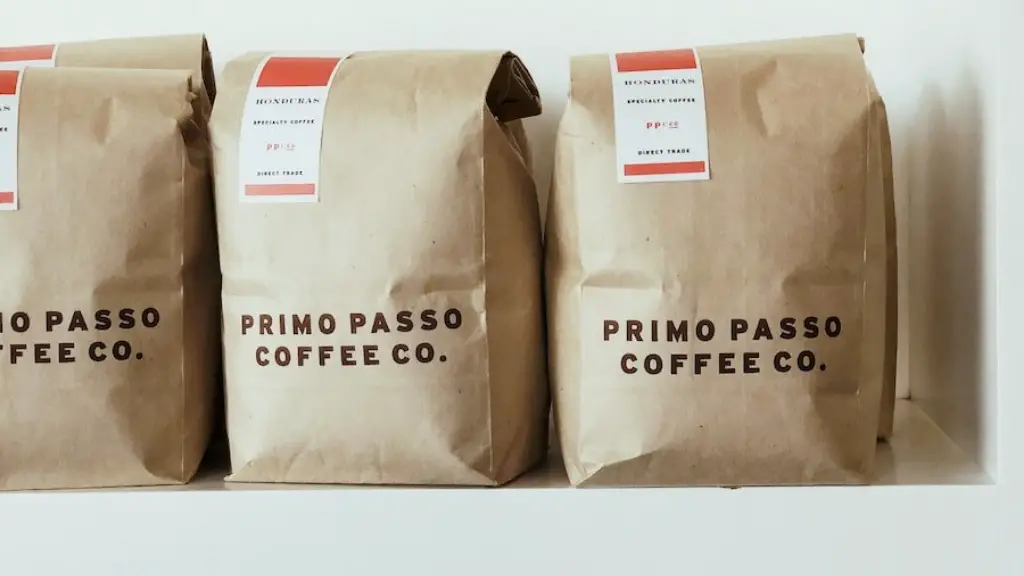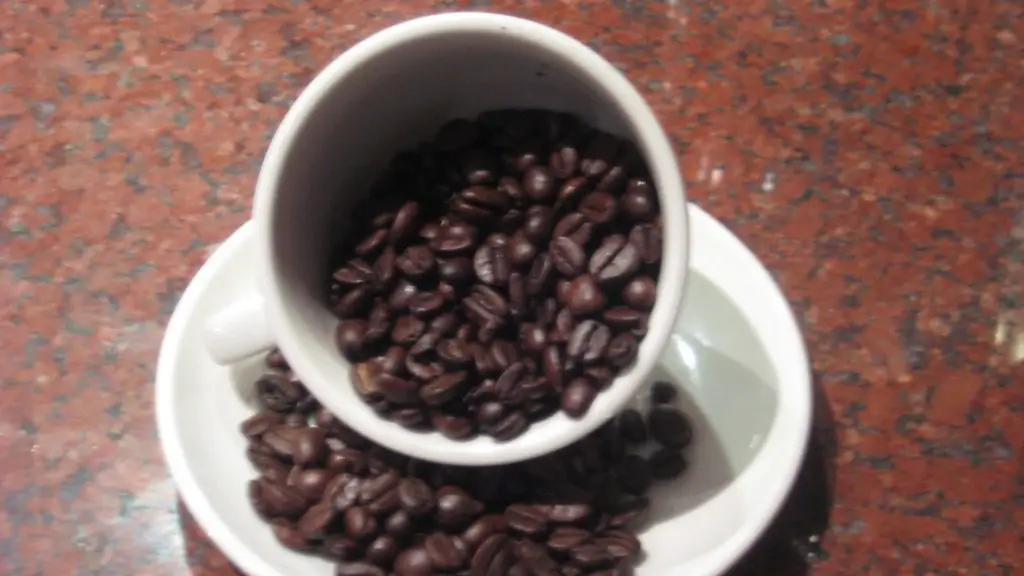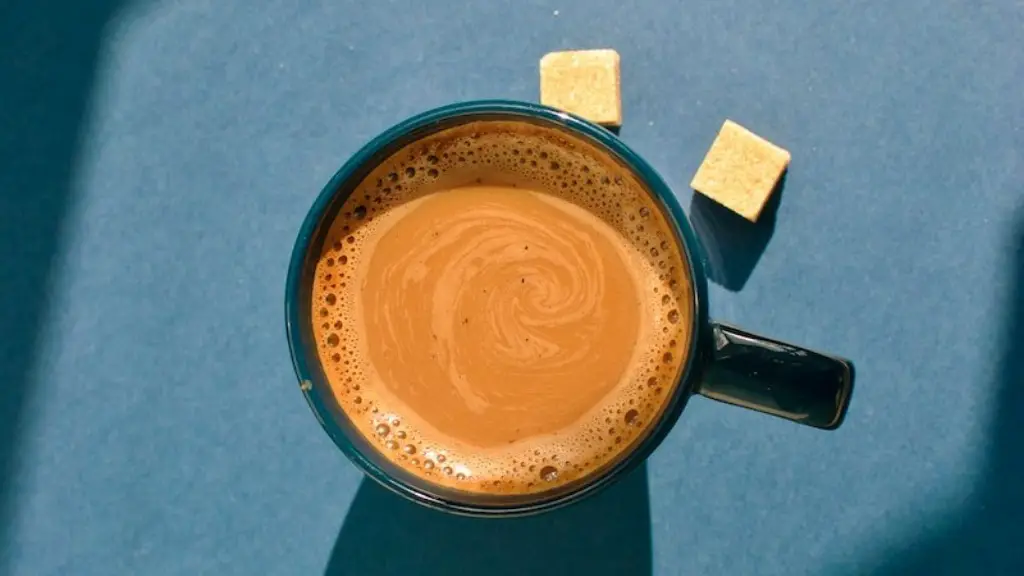Coffee is one of the most popular beverages around the world, and for good reason – it’s delicious, energizing, and even has some health benefits. But when it comes to the question of decaf coffee vs. plain water, which is really the healthier choice?
The truth is, of course, that there are a lot of factors that come into play when comparing decaf coffee and water. While both beverages have their own merits, depending on what you’re looking for in a drink, one could be a better choice for you than the other.
One main difference between decaf coffee and water is the amount of caffeine in each. Decaf coffee still contains some caffeine, albeit in lower amounts than regular coffee. Generally, an 8-ounce cup of decaf has about 2 to 12 milligrams of caffeine whereas an 8-ounce cup of regular coffee can contain anywhere from 95 to 200 milligrams. This can make a difference in how you’re feeling in the mornings or late afternoons, so be sure to keep this in mind.
Decaf coffee also contains some essential nutrients like magnesium and potassium as well as some antioxidants. While these benefits are not as significant as they are when it comes to regular coffee, they still can provide you with some health benefits. On the other hand, water doesn’t contain any nutrients and is mostly just a source of hydration.
When it comes to the taste, many people will agree that decaf coffee has a much richer, fuller flavor than plain water. This can be attributed to the lower levels of caffeine, as well as some of the other flavors and aromas that are present in decaf coffee. But again, this is a subjective matter and everyone has different taste preferences.
Overall, it’s important to consider all of these factors when deciding between decaf coffee and water. If you’re looking for a drink with some nutritional benefits, go for decaf coffee. If you’re mainly looking to keep your body hydrated and don’t care about the flavor or benefits, plain water may be the better choice for you.
Caffeine Levels in Decaf Coffee
When it comes to the caffeine content in decaf coffee, it’s important to understand that it means what it says. Decaffeination processes can heavily reduce the caffeine, but it’s nearly impossible to completely remove it from the drink. This is why it’s typically recommended to not drink more than two cups of decaf coffee a day.
In addition, it’s important to note that not all processes for decaffeination are equal. Many of them involve the use of chemicals to do the job, which can be harmful to your health if you consume too much of it. Therefore, it’s best to buy decaf coffee from reputable brands and regularly check labels to make sure the decaffeination process used is healthy.
In general, if you want to minimize your caffeine intake, decaf coffee is probably the best option. But as with any other type of coffee, you don’t want to overdo it. Drinking two cups of decaf a day should be enough to get you your desired flavor and health benefits without overdoing it on the caffeine.
Flavor
The flavor of decaf coffee can vary greatly depending on the type of coffee beans used, the roast, and the decaffeination process utilized. Light-roasted decaf generally gives off a milder, mellower flavor that tends to be more suited for those who don’t like the bitterness of regular coffee. Dark-roasted decaf, on the other hand, provides a much richer and more intense flavor that is closer to the taste of regular coffee. The process used to decaffeinate the coffee will also affect the flavor, with the Swiss Water Process providing the most minimal impact on the taste.
Ultimately, the flavor of decaf coffee is a subjective matter and the only way to know what you like is to experiment. Try different types of beans and roast levels to see what you enjoy the best.
Cost Comparison
When it comes to the cost of decaf coffee versus plain water, there’s no clear winner. It really depends on where you’re buying the decaf from and how much plain water costs in your area. Generally speaking, however, decaf coffee tends to be more expensive than plain water, simply because of the additional processing involved.
If cost is an issue for you, try buying in bulk or finding a brand that’s more affordable. Alternatively, you could also opt for a more natural decaffeination process like the Swiss Water Process, which could help you save some money in the long run.
Environmental Impact
When it comes to the environmental impact of decaf coffee, most of the effects will be the same as they are with regular coffee since the impact of the decaffeination process is relatively minimal. One downside of decaf, however, is that it tends to require more energy to produce than regular coffee due to the additional process of decaffeination.
If you’re concerned about the environmental impact of your beverage choice, you may want to opt for plain water instead. Not only will it be less expensive, but also you won’t be adding to the environmental impact of decaf coffee.
Coffee Alternatives
If you’re looking for something that will give you the flavor of coffee without the caffeine, there are many coffee alternatives available. These include popular drinks like chicory coffee and yerba mate, both of which come with a unique flavor and some potential health benefits. You can also try tea or herbal tisanes like chamomile or ginger.
Another option is to have a cup of regular coffee but instead of drinking the whole cup, try having just a few sips and then switching to one of the coffee alternatives for the rest of your morning or afternoon beverage.
Health Benefits of Decaf Coffee
Decaf coffee has some potential health benefits that may be beneficial to those who don’t want to consume too much caffeine. For example, decaf coffee has been linked to improved liver health, a lowered risk of type 2 diabetes, and improved cognitive performance. These benefits are due to some of the compounds found in coffee, such as antioxidants and polyphenols.
While the health benefits of decaf coffee are not as significant as they are with regular coffee, they’re still worth keeping in mind. Not to mention, decaf coffee can also provide you with a warm and comforting drink that won’t leave you feeling jittery.
Conclusion
At the end of the day, the decision of whether to go with decaf coffee or plain water really comes down to personal preference. While both beverages have their own benefits and drawbacks, it’s up to you to decide which one is right for you. Consider all the factors discussed here to make the best choice.





